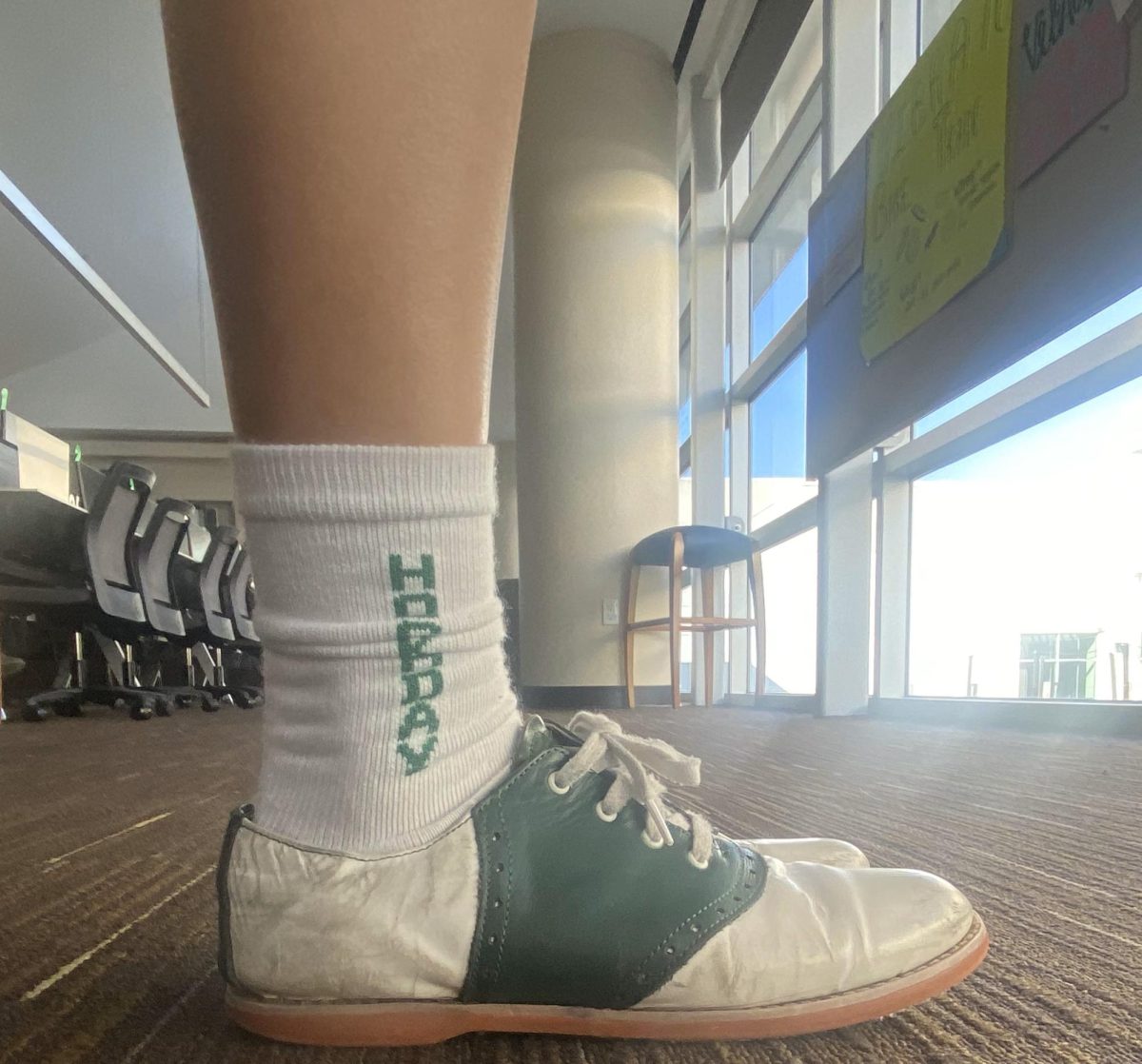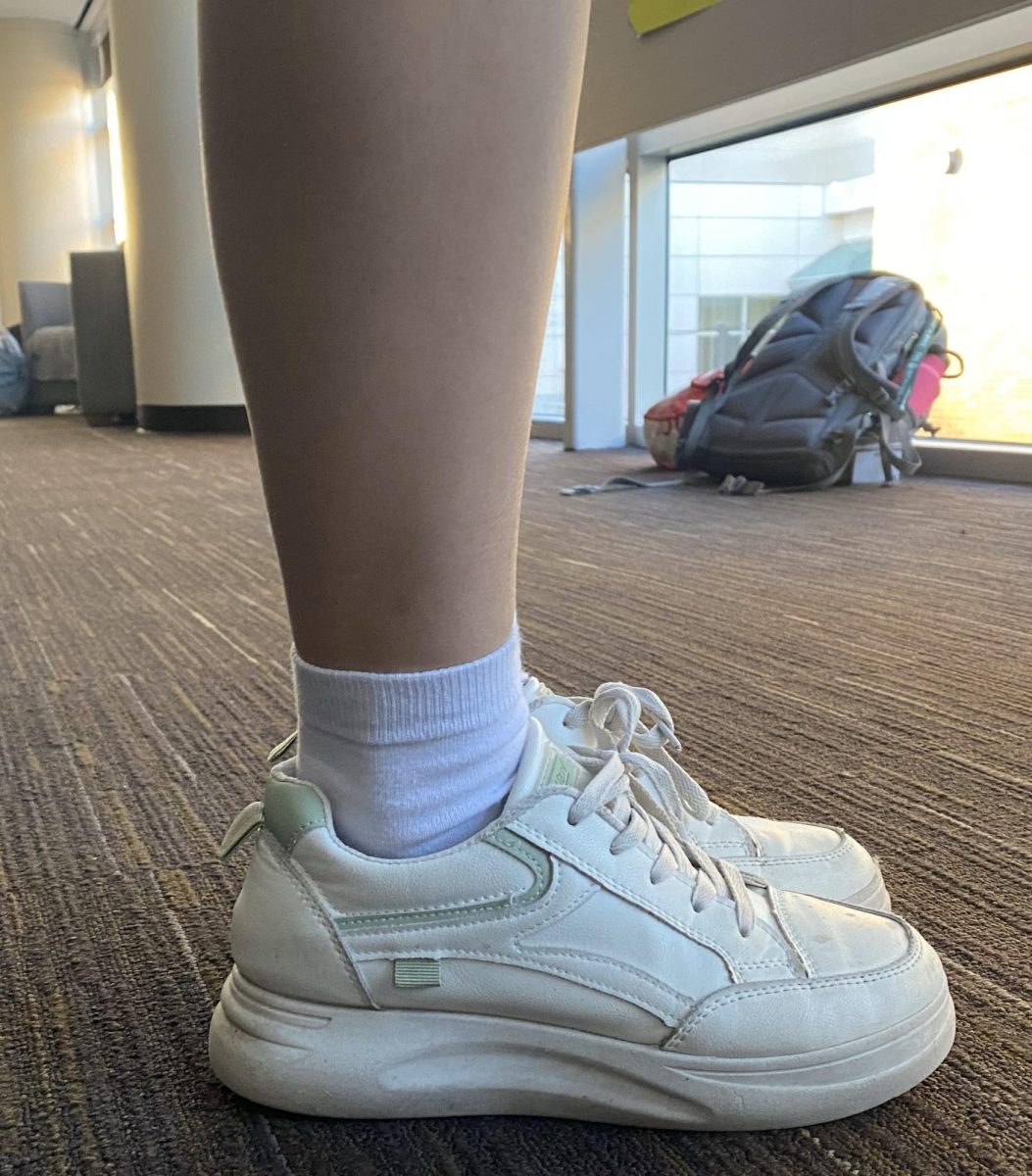Gretchen O’Brien
As Hockaday students, we push ourselves to be better than the best, whether it is at sports or academics. This is a great thing because research shows that exercise makes you smarter. I could end the argument here and some of us would go on a run with just that fact, but I’ll elaborate.
In Dr. John J. Ratey’s book “Spark,” he writes that for the past five years the California Department of Education has studied the correlation between physical fitness and academic achievement. The department’s results show that those who had higher fitness scores also had higher test scores.
Ratey states that fit kids, those who work out at least twenty minutes four times a week with a maximum heart rate at 60-70 percent , score twice as well on academic tests compared to unfit students, which was proved in 2001. Rately states in his book that “among California’s 279,000 ninth graders…those who scored a six on the FitnessGram ranked, on average, in the sixty-seventh percentile in math and the forty-fifth percentile in reading on the Stanford Achievement Test.” The students are not only working their muscles but also their brains.
When we workout and get our muscles moving, our body produces proteins that travel through the bloodstream and into the brain, boosting our thought processes and memorization skills.
Why does this matter if you are already doing well in school and/or are not obese? Well, it is affecting you right now. As you read this sentence, your brain is firing signals about what you are reading, and how much of it you’ll remember is due to a proper balance of neurochemicals and growth factors bound together. “Exercise has documented dramatic effect on these essential ingredients,” Ratey wrote. So, if you are able to work out for at least 30 minutes a day, your brain will do a better job retaining the information you learn in school because of the amount of protein you feed it.
Plato once said that “in order for man to succeed in life, God provided him with two means, education and physical activity…With these two means, man can attain perfection.” The evidence provided by Ratey and other research proves that exercise can make you smarter. If you are still struggling with this concept, Hockaday has its own SPARK club that walks almost every Friday morning before school. Try it out, and see how awake and alert you are during your classes. I guarantee you will see a difference.
Elie MacAdams
Just to be clear, I’m not against being healthy. I’m a Hockaday athlete, and I love it. But I do think the educational system’s focus on sports could use some tweaking for several reasons.
For high school sports, there’s winning and losing—nothing in between. Our banners hang proudly in Penson, marking our past SPC victories. When we win, it’s great. But what happened to just having fun in sports? The constant stress on winning, whether it be brought by coaches, peers or faculty, has got to stop. Most of us won’t even continue with our sports after high school.
For me, sports have become an unwanted distraction. When I’m worried about winning the race I have on Saturday, I can’t focus on anything else. Even during the week, all I can think about is the formidable cross country practice I have waiting for me after school. My schoolwork becomes second in importance—all I care about is the pain I’m about to endure. And if I lose a meet or have a bad practice, I end up feeling worse about myself for the rest of the week.
Injuries are another major reason why our focus on sports should be lessened. I know from experience that when a player gets an injury, it’s both emotionally and physically painful. Concussions are serious cases and can leave the player with setbacks in all parts of their life. Even with minor injuries, the player can still end up feeling guilty. Last year during track season, I had shin splints that just wouldn’t go away. I would miss some practices due to impromptu physical therapy sessions. At school, I would hear about the track workouts I missed. Instead of feeling thankful for getting to miss a tough practice, I just felt guilty—as if I was letting my team down. For a while, I felt useless and weak for not being able to work through the pain. This feeling permeated not only through my athletics but also through my academics. I compared myself to other people in sports, which led to comparing myself to others in school. If other people can run through shin splints, then why couldn’t I?
I agree that sports are rewarding, beneficial and team-building. However, there has to be a happy medium somewhere between the carefree P.E. class “fitness walking” and stress-inducing cross country races. Rather than focusing on winning, why not focus on staying fit and living a healthy life? After all, learning vital fitness techniques will lead to a healthier lifestyle more than learning how to run a 400 meter relay.




Kathryn Speckman
Dec 20, 2013 at 8:12 am
I’m with you Elie, and proud to be your grandmother, by the way. We are overdue for a practical, commonsense approach to the way we view sports in this country.
Years ago I attended Orthopedic lectures, as part of my studies in Occupational Therapy. It was unspeakable then to question the value of sports overall, yet some brave Doctors dared to show us graphic examples of sports injuries that would adversely affect young people all of their lives.
Even early, minor injuries can lead to serious physical and emotional complications as people age. It’s good for young people to think about this now. You will grow old. You will still have possibilities and young desires. Think pro-actively: Why impose needless limits on what you can and want to do. You don’t want them now. Why would you want them in your “golden years?”